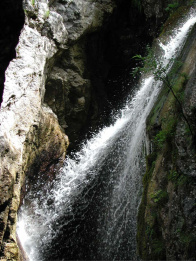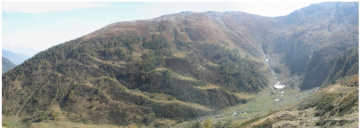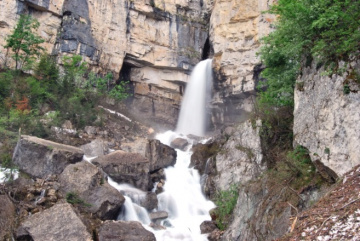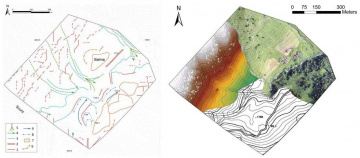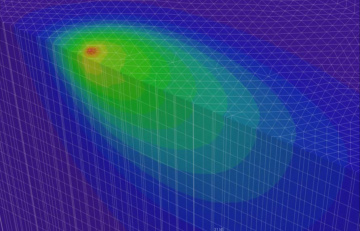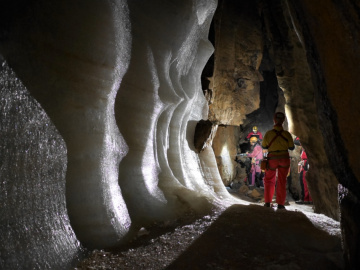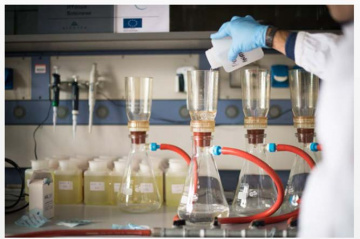APPLIED GEOLOGY, PHYSICAL GEOGRAPHY AND GEOMORPHOLOGY
The Applied Geology area studies the physical geography and geomorphology of the "Environment system". In particular, Applied Geology deals with the defense of the soil, territory and civil protection, with attention to landslides, hydrogeology, the study of underground water circulation, the geological-technical survey, geological exploration of the subsoil and thematic cartography, geological and hydrogeological risk; interpretation of aerial photos and satellite images, topographical analysis on digital models of the survey, study of climate changes and their influence on erosion, sedimentation and pedogenesis processes, the study of geothermal systems, the analysis of geological systems related to hydrocarbons and minerals. Research methods include field and laboratory experiments and appropriate numerical modeling software is often used.
Main topics covered by the teachers LO RUSSO, TADDIA, VAGNON and GIZZI:
Low and high enthalpy geothermal systems: evaluation of the potentialities connected to the use of low and high enthalpy geothermal systems. Numerical modelling of the main geothermal production systems, analysis of the potential for reuse of groundwater for geothermal and energy purposes.
Hydrogeology: protection, monitoring and planning of groundwater resources, assessment of water flows and matter, management and protection of groundwater resources in relationship with underground infrastructures.
Digital photogrammetry and geological-technical cartography: development and application of digital photointerpretation techniques in geological and geological-application surveys, aimed at the analytical-statistical treatment of environmental data.
Slope stability analysis: development of systems for the risk assessment connected to rock falls and debris flow, analysis of evolution of deep-seated gravitational slope deformations phenomena.
Geology of hydrocarbons and mines: analysis of geological systems and evaluation of the potential connected with the development of hydrocarbons and minerals.
Data relating to the SOURCE research, developed within these themes, are available on our Istitutional Repository at the link: http://hdl.handle.net/11583/2956406
Main topics covered by the teachers VIGNA, FIORUCCI, VAGNON and GIZZI:
Karst hydrogeology: Underground Laboratory in Bossea Caves - continuous monitoring of water, radon monitoring in water and in the atmosphere, study on the circulation in the unsaturated zone
Springs analysis: monitoring and implementation of conceptual models relating to the operation of numerous springs fed by aquifers in carbonate rocks with different degree of fracturing, karst and type of landfields.
Groundwater geochemistry: Hydrogeological Research Laboratory - chemical analysis of water, major elements, heavy metals and rare Earths. Food traceability and research on soil-plant transfer.
Interactions between groundwater and underground works: research through continuous flow monitoring systems, mineralization of water temperature for the evaluation of interferences of underground works (tunnels and underground quarries) on aquifers characterized by different levels of permeability.
Artificial tracers: study on the hydrogeological use of fluorescent markers (fluorescein and tinopal). Testing in different hydrogeological context with reconstruction of the tracer arrival curve.
The snow melting processes and aquifers recharge: experimentation of new instruments for measures on water volumes caused by the melting of the snowpack.
Interaction with Groundwater and slope stability: studies relating to the Langhe hilly slopes and to deep seated gravitational slope deformations in the Susa Valley through continuous monitoring of springs and drainages. Research in collaboration with Arpa Piemonte.
Study on air-rock-ice temperatures in relation to climate change: monitoring of the thermal values of rock-air and ice in a series of sample cavities that ice deposits in the phase of considerable reduction. Research in collaboration with Arpa Piemonte.
Study of air-rock-water temperatures in relation to climate change: installation in the Bossea Cave of a continuous monitoring system of air-rock-water temperatures at different depths to assess the interference between surface temperatures and karst rock masses. Research financed by the DIATI laboratories of excellence, Paleolab section. In collaboration with INRIM, Arpa Piemonte, CAI karst laboratory.
|
|
|
|
|
|
|
|
